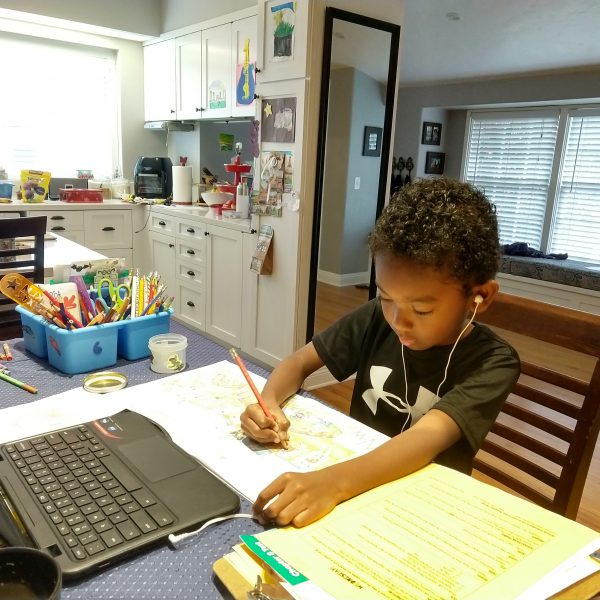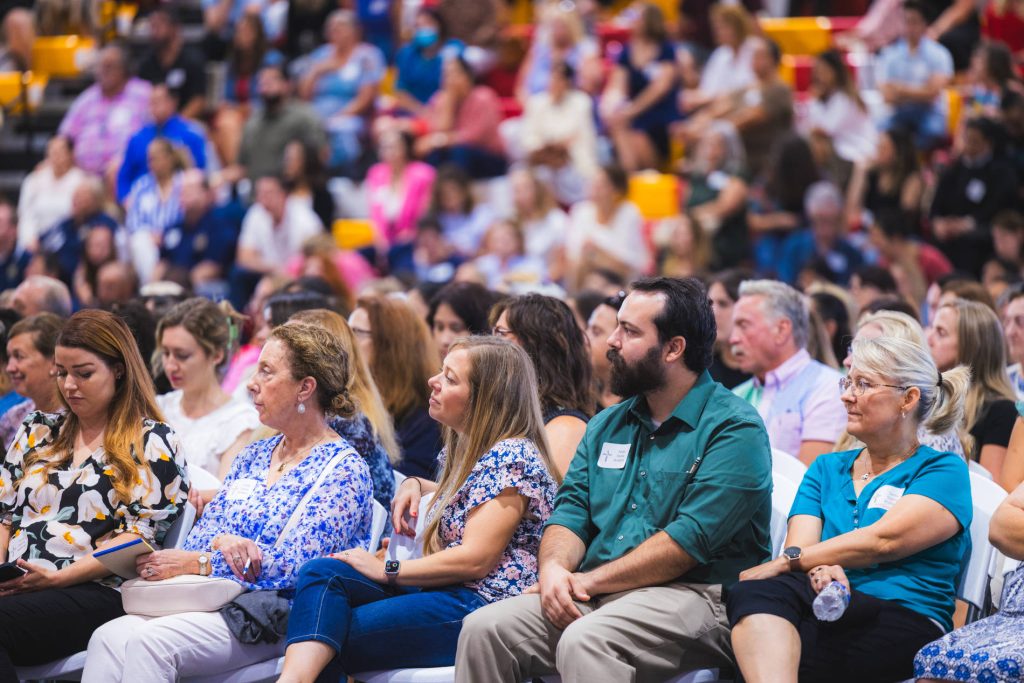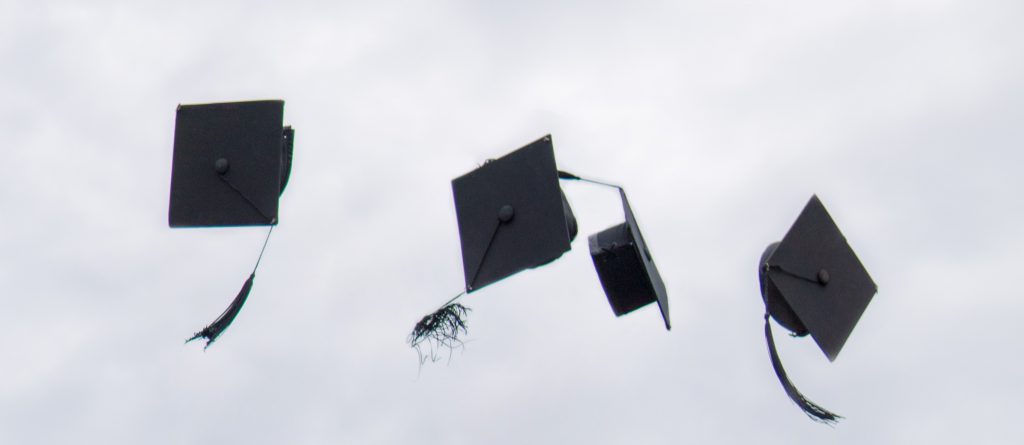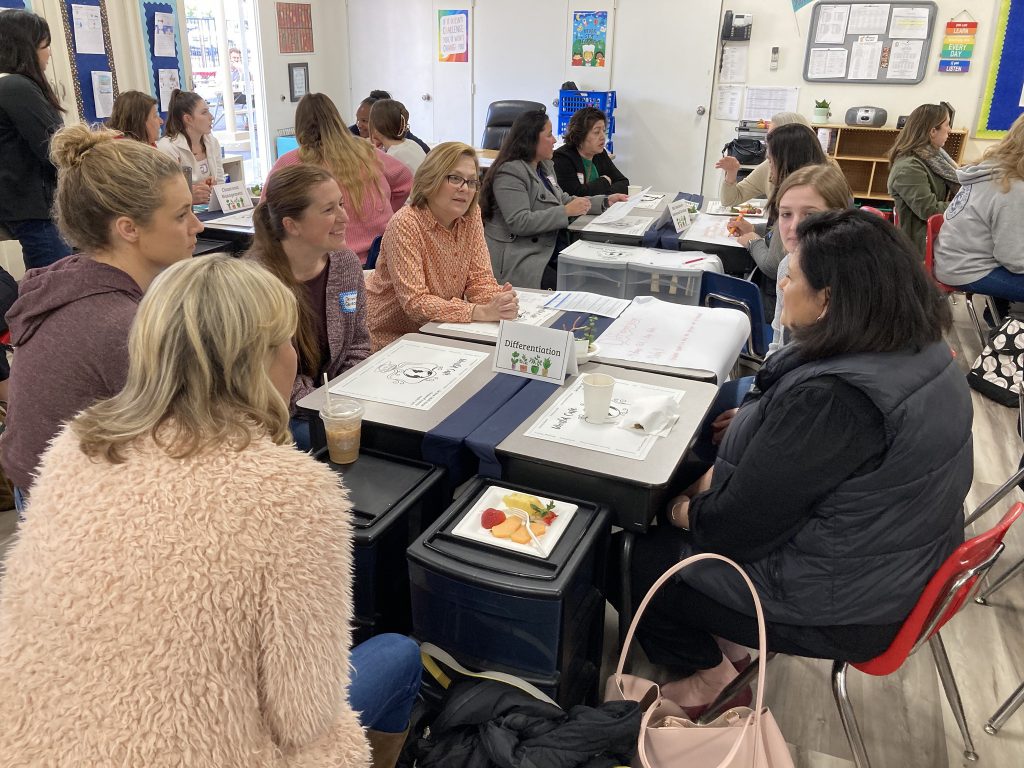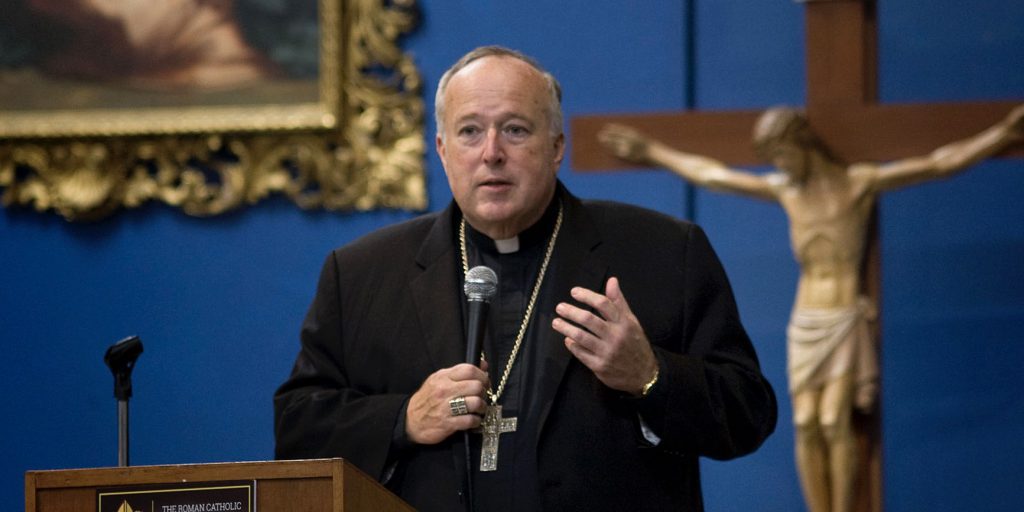SAN DIEGO — Scripture tells us that “faith the size of a mustard seed” can move a mountain.
But until recently, local Catholics might have doubted that something like the novel coronavirus (COVID-19), which is exponentially smaller than any mustard seed, could stop an entire world in its tracks.
All public Masses were cancelled and all Catholic schools switched to distance learning as of March 16, and the statewide “stay-at-home” order issued three days later by California Gov. Gavin Newsom further curtailed the already limited list of sanctioned parish activities.
“The well-being of all people is our priority and, although the restrictions that have been placed do greatly impact our parish activities and ministries, this time of social distancing allows us to reflect ever so deeply on this Lenten journey,” said Maria Olivia Galván, chancellor of the Diocese of San Diego. “These times of uncertainty and unprecedented measures call for us to unite in prayer more fully as the one Body of Christ that we are.”
And local Catholics have responded to that call, demonstrating a resiliency marked by faith.
With the Local Church following the directives of elected officials and public health authorities to stem the spread of the virus, parishes and schools have seen their work radically changed, but certainly not ended.
Parish-based faith formation and sacramental preparation programs, as well as the entire Catholic school system, have transitioned to distance learning. With their obligation to attend Sunday Mass dispensed for the duration of the pandemic, Catholics have turned to televised and streaming liturgies to remain connected to the liturgical life of the Church.
Galván, who also directs the diocesan Office for Evangelization and Catechetical Ministry, said parish catechists have had to adjust to “this new reality we are facing.” But they have been aided by the fact that the publishers of many faith-formation curricula already offer options such as e-books and user-friendly online platforms with lessons, activities and prayers.
The Office for Evangelization and Catechetical Ministry has created a webpage, sdcatholicdisciples.net/covid19resources, to provide parish catechists and parents with easy access to distance-learning resources.
For weeks before Bishop Robert W. McElroy announced that local Catholic schools would close, the diocesan Office for Schools had anticipated that a worsening pandemic might make such a move necessary. The Schools Office began curating distance-learning resources, and it launched a special website for Catholic school teachers and principals.
“We are here to support our educators through this process, and we know there will be things that we all need to figure out together, as there is no guidebook for what we’re experiencing,” said Dr. Julie Cantillon, associate director of the Office for Schools, who has seen local schools collaborating with each other as they began the transition to distance learning.
Since March 16, the Office for Schools has also been sending out a daily e-newsletter, featuring distance-learning tips, resources and best practices for Catholic school educators.
Some local Catholic elementary schools have continued their traditions of morning prayer and school assemblies, albeit in video form and shared via social media. Cantillon said that seeing such videos has been a source of inspiration for her and the Schools Office.
“It’s a daily reminder of why parents make sacrifices to send their children to our Catholic schools,” she said.
Ben Fishburne, third-grade teacher at St. Mary School in Escondido, has been making daily videos to welcome his students to each new day of distance learning. The lighthearted videos feature an original theme song written by Fishburne that plays over an opening credits sequence, as if each video were an episode of a TV show.
He said the videos came about as a way “to start my students’ mornings off right” and give them “a sense of normalcy” during their first week.
For Fishburne, the biggest challenges of distance learning have been technological issues, such as unreliable Wifi connections. But the school has been working with each family to address such concerns, he said, “and each day is getting easier for everyone.”
He said the school’s administrators and teachers meet online twice a day, and each teacher hosts scheduled office hours when students are able to video chat with them.
Fishburne said he is “so impressed with the resiliency” of everyone involved in this new distance learning arrangement.
“With schools, businesses and Masses closing, and social distancing being part of the norm, it looks like it will be very easy for us to distance ourselves from our faith and from each other,” he said. “Despite these challenges though, I’ve recently seen our staff, my students’ families, and the Catholic schools in San Diego become more unified than I have ever seen before.”
Local Catholic secondary schools have also made the transition to distance learning.
Dr. Lauren Lek, head of school at the Academy of Our Lady of Peace (OLP), is pleased with how smoothly her school has adapted.
“Beyond just the delivery of instruction, we have intentionally woven into each day opportunities for community-building with all 850 of us,” she said. “I never thought it would be possible virtually until we were forced to do it. We are one giant virtual Brady Bunch.”
In addition to classes, OLP has also successfully hosted virtual all-school assemblies and is continuing to offer counseling services virtually.
Jessica Hooper, assistant head of school at OLP, said, “Even on a virtual platform, all of our regular services are continuing.”
In the absence of public Masses, many local Catholics have been viewing Catholic liturgies on TV or computer screens. Visitors to the Diocese of San Diego’s website, sdcatholic.org, can watch Sunday Masses celebrated in English, Spanish and Vietnamese, and daily Masses in English and Spanish.
Galván said that watching these Masses, when unable to attend in person, provides the local faithful with “hope and a sense of community,” even in this period of temporary isolation.
Father Efrain Bautista, pastor of Corpus Christi Parish in Bonita, said it “saddens” him to be unable to celebrate the Eucharist with his parishioners.
The parish has remained in contact with its parishioners through its website, social media, email and, in the case of some of the parish’s older members, has reached out by telephone, he said. But technology has its limits and “it’s still very hard to be present to all of our people.”
Father Bautista said the disruption caused by COVID-19 and efforts to mitigate its spread can serve as a reminder of our dependence on God and how we should not take the gift of the Eucharist for granted.
But even “in the midst of this uncertainty … God has not abandoned us,” Father Bautista said.
“We’re not alone. God is still walking with us, side by side. … Don’t lose faith and don’t lose hope,” he said, offering an encouraging message to the faithful of the diocese.
At St. Margaret Parish in Oceanside, with no public Masses to celebrate, Father Cávana Wallace has found himself walking around the parish campus, speaking one-on-one with parishioners and hearing confessions.
“Interestingly, I’ve been able to enter into much deeper and meaningful encounters with the flock this way,” he said, contrasting it with “the quick handshake at the door” that he used to receive before and after Mass in the halcyon days before anyone had ever heard of a coronavirus.
Via email on Sunday evening, March 22, Father Wallace reflected on his experiences that day, which included witnessing “a continual but gentle flow of parishioners” coming to pray.
“Before leaving the church after the day’s work in the vineyard [of the Lord],” he said, “I went through the pews spraying disinfectant — probably a new daily ritual of sanitization and sanctification.”

